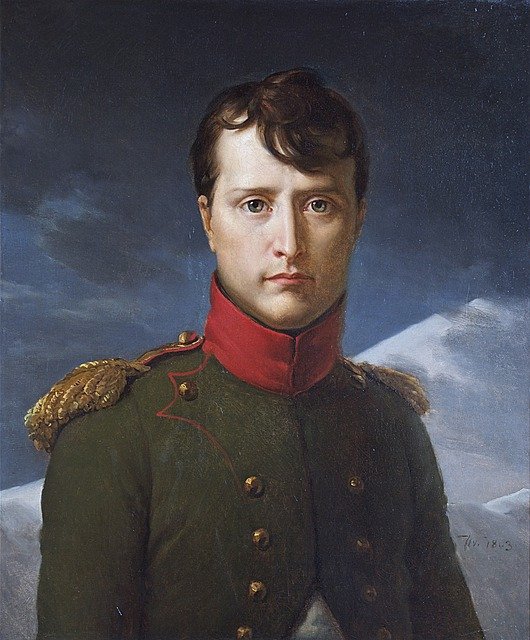 Submitted by Glorious Bastard on
Submitted by Glorious Bastard on

Image by WikiImages from http://Pixabay.com
The Napoleon’s Book of Fate or the Oraculum had been originally discovered in one of the Royal tombs of Egypt during a French military expedition of 1801, and at Napoleon’s request was translated by a famous German scholar and antiquarian. Apparently consulting it “before every important occasion”, the book became one of the emperor’s most treasured possessions. It was found among his personal possessions after the defeat of his army at Leipzig in 1813 and translated into English in 1822.
There is also this more elaborate edition from 1923, with the epic title The Book of Fate, formerly in the possession of and used by Napoleon rendered into the English language by H. Kirchenhoffer, from a German translation of an ancient Egyptian manuscript found in the year 1801 by M. Sonnini in one of the royal tombs near Mount Libycus in Upper Egypt. It gives lots more information in its introductory pages, as well as a transcription of a note apparently found with Napoleon’s copy in his own handwriting detailing the answers he received from the Oraculum to a series of questions.
The book is a simplified variant of geomancy which was popular as a method of divination in the nineteenth century. In this practice, the diviner chooses one of thirty-two stock questions, then makes five random rows of dots or dashes with a pen. The first twelve dots or dashes are marked off and the remainder are counted. An odd number is marked with a single dot and an even number with two dots. The result is then looked up in a table which directs the diviner to the page containing a sentence that answers the original question.
According to Herman Kichenhoffer, the book was translated by a learned Copt but since no one (not even a Copt) could read ancient Egyptian documents at that time, there is reason to doubt the accuracy of the story … The Rosetta Stone, which translates Egyptian hieroglyphs into Greek, was not fully deciphered until the 1820s. It would have been impossible for Napoleon’s “German scholar” to translate the Oraculum with the detail necessary for consultation. But more to the point, it is hard to imagine how a conquering emperor would use this book. The questioner is limited to a fixed list of thirty-two questions, most of which have nothing to do with military success. The answers tend to be little bits of conventional wisdom, more reminiscent of Poor Richard than of King Tut.
The true origin of the Oraculum is unclear. Reportedly there were English translations in the 1820s but the most widely sold version was Boney’s Oraculum, or Napoleon’s Book of Fate, published in Ireland by James Duffy and Sons in 1830. The Oraculum was published in America in the 1830s and the book remained popular, with numerous editions, throughout the century. There were several twentieth century editions but the book is out of print today.
These are a few of the questions (with their answers) as recorded by Napoleon in his diary:
Question: Will my name be immortalized, and will posterity applaud it?
Answer: "Thy name will be handed down, with the memory of thy deeds, to the most distant posterity."
Question: Shall I be eminent, and meet with Preferment in my pursuits?
Answer: "Thou shalt meet with many obstacles, but at length thou shalt attain the highest earthly power and honor."
Question: "Have I any, or many Enemies?"
Answer: "Thou hast enemies who, if not restrained by the laws, would plunge a dagger in thy heart."
See a version: http://www.iapsop.com/ssoc/1884__anonymous___napoleons_oraculum.pdf
How to consult the Oraculum: http://www.paranormality.com/napoleon_fate_book.shtml
Resources:
http://publicdomainreview.org/collections/napoleons-oraculum-1839/
http://nightstick1.azurewebsites.net/post/Napoleons-Oraculum.aspx
The New Encyclopedia of the Occult by John Michael Greer
- 2262 reads